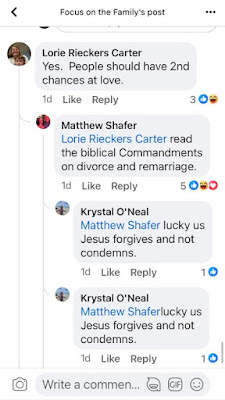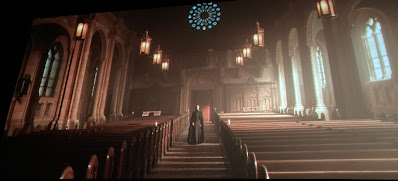Our Lenten observance during this penitential season rests on three pillars--prayer, fasting, and almsgiving. They often seem to come in that order for us, with focus and pride of place being devoted to the first two while the third--almsgiving--tends to trail a little.
I don't believe this is because we willfully wish to neglect this most pious and ancient practice, but because we don't actually know how to go about it properly. We learn the secrets of mental prayer from the Fathers and the saints and the concrete laws of the fast from the Church, but with regards to almsgiving we are sometimes left to our own devices to figure out how to subjectively put it into practice, or rely on the cardboard CRS "ricebowl" to stuff our weekly dollar bills in fulfillment of this precept.
For conservative Catholics, there can perhaps also be an unconscious fear of aligning ourselves too much with a "redistribution of wealth" mindset with those who did not work or earn it, or with the mindset of so-called Social Justice Warriors who prioritize corporal works over the spiritual. Or we may simply struggle with the idea of a "deserving versus undeserving" poor, and fear feeding addictions or bad habits with our alms. Lastly, we can sometimes feel the pressure of manipulation to give as we are approached on the street with oftentimes fabricated stories of someone needing bus money to get to where they are going, or panhandlers who are sometimes known to strategically exploit those with tender hearts, and so our alms are not always freely given in these cases, but extorted in a sense.
It would be helpful to lead off with the teaching that almsgiving is first and foremost of act of mercy, as St. Thomas notes “the motive for giving alms is to relieve one who is in need” (S.T. II-II q32 a1). We can see the terror of the debtor who is being threatened with being sold with his family into slavery in Matthew 18:23-25 when he cannot pay back what he owes. When the man begs for mercy, the master takes pity and cancels the debt in full; however, the man forgiven does not apply the same mercy to one who owes him a much smaller sum, and when the master hears about he punishes him severely. Our Lord relates this physical act of mercy to forgiveness of grievances, but it is clear from the parable that relieving the burden of need from our brothers as an act of charity is tied closely with the exercise of mercy.
We can also see the eternal consequences of neglecting charity with regards to the rich man and Lazarus--the poor man who is intentionally ignored in his need. When they both meet their ends, the rich man goes to Hell specifically on account of his callous neglect. When we meditate on Hell, we often confine our thoughts and guilt to our sins of commission, rarely ascribing ourselves to the place of the rich man and sitting in his seat feasting. St. James makes a similar point with regards to the "work" of charity,
"Suppose a brother or a sister is without clothes and daily food. If one of you says to them, “Go in peace; keep warm and well fed,” but does nothing about their physical needs, what good is it?" (James 2:15-16)
Just as God cannot be outdone in mercy and by our penance, we attempt (but never can fully accomplish) the act of repaying all the Lord has done for us in ransoming us from sin and death (Ps 116:12). And so we know there are also spiritual benefits to exercising mercy in imitation of our Lord who forgives seventy times seven:
'Give alms out of thy substance, and turn not away thy face from any poor person: for so it shall come to pass that the face of the Lord shall not be turned from thee.
According to thy ability be merciful. If thou have much, give abundantly; if thou have little, take care even so to bestow willingly a little.
But do not hesitate to give alms; for thus thou storest up to thyself a good reward for the day of necessity.
For alms deliver from all sin, and from death, and will not suffer the soul to go into darkness.
Alms shall be a great confidence before the most high God, to all them that give it.'
(Tobias 4:7-12)
Charity does not bind anyone to employ extraordinary means in order to safeguard his own life (St. Alphonsus, op. cit., III, no. 31). As a guide, St. Alphonsus offers a tangible outlay corresponding to "two per cent of temporalities superfluous to social prestige suffices to satisfy the obligation." This may be helpful to us when we are tempted to either give too much imprudently or too little in letting ourselves off the hook of our obligation to the needy, and assuage scrupulous consciences. Furthermore, St. Thomas states that we cannot help all, but only those close to us as “we are not bound to relieve all who are in need, but only those who could not be succored if we not did not succor them” (II-II q32 a5).
Likewise, well-meaning Christians can sometimes struggle with exercising the prudence required of being a steward of wealth, in making concrete determinations of where and to whom to give. They should keep in mind the teachings of the Apostolic Constitutions that discretion is required in such circumstances and that "alms must not be given to the malicious, the intemperate, or the lazy; lest a premium should be set on vice" (Const. Apost., ii, 1-63; iii, 4-6).
As Christians, we can sometimes elevate "the poor" to a kind of ethereal status, in the same way we might speak of "the Communists" as a specter of threat--out there, but not knowing where they really live or who qualifies as "poor." Because our brains often rely on stereotypes to reduce complexity and avoid cognitive overload (known as heuristics), we construct what a poor person is based on physical or environmental circumstances--the disheveled man on the street, or the migrant with children living in a shelter, or the elderly person subsisting on cat food and tap water.
But what about the head of household who makes a six figure salary and who through poor choices finds himself leveraged by debt with no emergency savings and a negative net worth? Is he and his family "poor," despite their ample means? What about the family with a median household income, who nevertheless live in an extreme high cost of living area in which they cannot afford adequate housing? The poor are not always the indigent, and sometimes they are hidden in plain sight but in non-stereotypical circumstances. Nevertheless, these can be difficult, subjective situation to discern.
So what does almsgiving look like, practically speaking--both for the giver and the recipient? Before answering that question it may be helpful to look to scripture of the disposition of the rich young ruler who approaches Jesus asking what he must do to gain eternal life in Mark 10:17-27. The man prides himself on his "doing"--that is, on fulfilling the Commandments. When our Lord takes it a step farther with another action item--to sell all that he has and to give it to the poor, and follow him--the young man cannot bring himself to take that step. If he could fulfill all the commandments of the Law, why could he not also fulfill this command? What was stopping him from doing so? Was the man going away damned like the rich man with Lazarus at his feet? Or was he simply forfeiting a higher calling to be "perfect, as your heavenly Father is perfect," (Mt 5:48) prioritizing his locus of control over the more volatile future of complete dependance on Divine Providence and as a result "settling for less?" As St. John of the Cross wrote, "It makes little difference whether a bird is tied by a thin thread or by a cord. Even if it is tied by a thread, the bird will be held bound… it will be impeded from flying as long as it does not break the thread.” Christ has called us to freedom, and while we hate to admit it, sometimes wealth (even modest wealth) and security can be that very thin string that binds us to this world.
For married men like myself, we know sainthood is possible, that is, made possible by Christ's redemption and our free will. But we are also reminded of St. Paul's words that "it is better not to marry" (1 Cor7:8), and that in accepting our state of life and necessarily being "of the world" we make a hard thing harder--impossible with men, but still possible with God. If we were forced to categorize ourselves as middle-class Americans as either "rich" or "poor", comparatively to the world, we would undoubtedly be considered the former. And that means as rich people, comparatively speaking, it is harder for us to enter Heaven than it is for a camel to enter through the eye of a needle (Mt 19:24). Again, impossible for men, but possible with God. To whom much has been given, much will be required (Lk 12:48). Almsgiving is as much for our spiritual benefit and fire protection as it is for its beneficiaries.
As "wealthy" people we are stewards, and as such we have the freedom of discretion in how much and in what ways we give alms. The Church herself does not exact a strict 10% tithe on Catholics, but rather uses this a suggested guide (5% to the poor, 5% to the Church). Likewise, we have freedom for how we as Catholics are privileged to exercise mercy through giving--some may prefer established charities, either close to home or abroad, others through direct service of time and treasure. Fr. Thomas Dubay in his book Happy Are You Poor presses in on this challenge to remind us that “Having wealth is damaging to the pursuit of the kingdom because the very having does something to one's inner life, one's very ability to love God for his own goodness and others in and for him.” Almsgiving is our Lord and the Church's proscription for our spiritual malaise.
For our family, we have gone the route of mainly prioritizing supporting individuals and families over established charities. In this economy, there is no shortage of those who are quietly struggling but may make too much to qualify for public assistance. We have PayPal-ed funds to indigents abroad (who were vetted by a trusted friend), as well as written checks to cover mortgage and utility payments for large families in which the husband has lost his job or suffered health issues. Other times, it was simply someone in need who came into our path who was an answer to prayer, and we were able to alleviate some of their financial burden. In all these circumstances, I try to write a check with my right hand while the left hand is kept in the dark. We are not saviors, for there is only one Savior--we are merely stewards, and given the privilege of exercising the spiritual mercy shown to us by the Lord to others in corporal need. Rather, we recognize that while we cannot do everything to relieve the burdens of others, we can most certainly do something.
"The poor" are not caricatures, though for those who like to flex virtue it would be more convenient if they were. For the poor can surprise us by their demureness, their hiddenness. They may be our neighbor in Christ, our neighbor of another faith, or our literal neighbor languishing behind closed doors next to us. And since the poor we will have with us always, there will be never not be an opportunity to exercise the muscle of charity during Lent and beyond it. The harder work, when we regard ourselves like the rich young ruler, is settling for less, shortchanging ourselves by prioritizing the pleasures of trifles and temporal distractions over the gift of charity, and keeping our hearts from becoming calloused. We would be wise to recall the words of St. Ambrose as a reality check when considering those in need: "You are not making a gift of your possessions to the poor person. You are handing over to him what is his. For what has been given in common for the use of all, you have arrogated to yourself. The world is given to all, and not only to the rich."


.jpg)
















